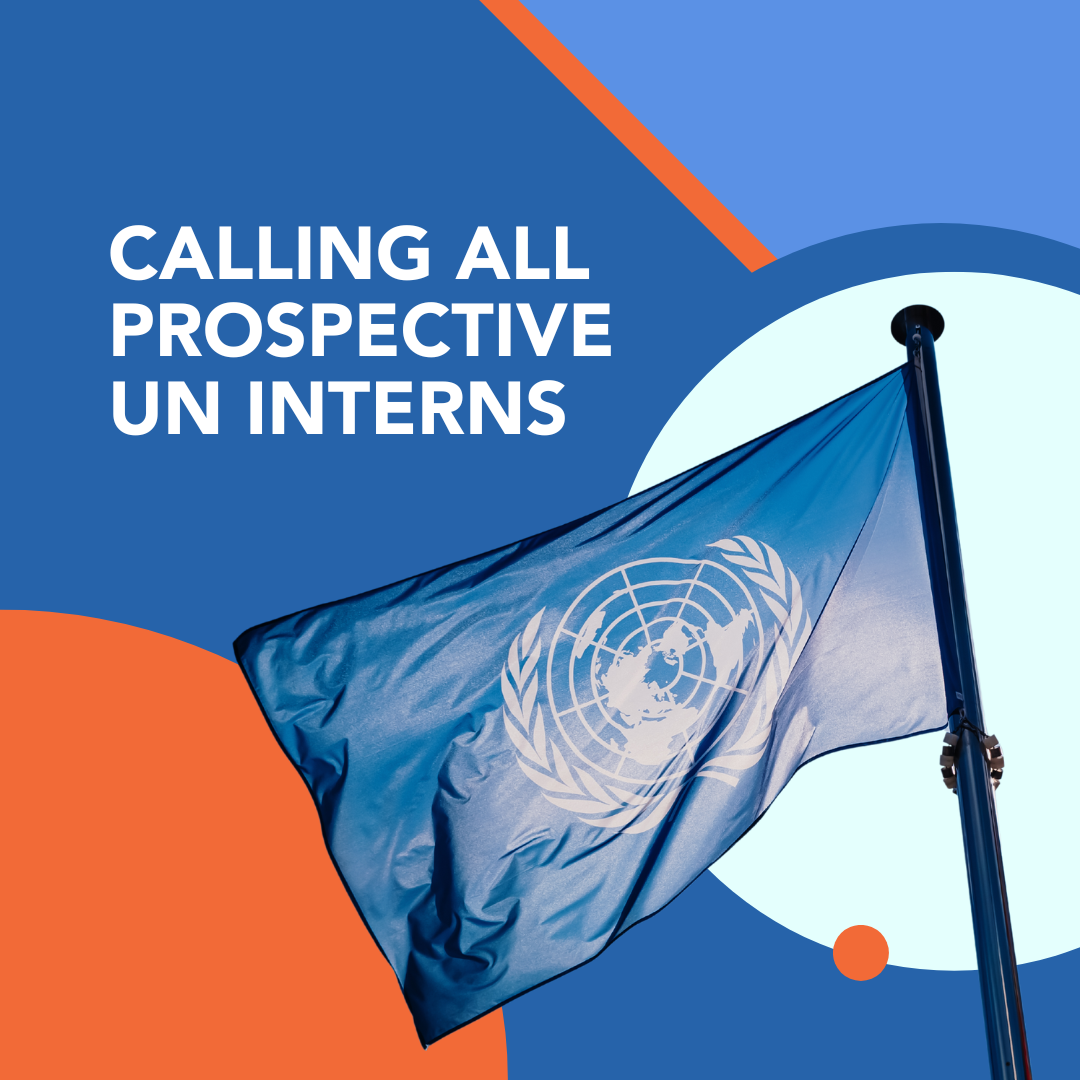UN Intern Reflection: Adriana Tavares, UNA-USA Fellow
Adriana Tavares is an Intern at the Office for Disarmament Affairs within the Department of Global Communications of the UN Secretariat at the New York, NY Headquarters. Adriana is supported by the grant from the UNA-USA Fellowship Initiative.
 March marks the endpoint of my 6 month internship at UNODA. I’ve learned that disarmament is an important aspect of human rights. It is more than eliminating destructive weapons from the international field but it is also about creating communities where people can thrive free from the threat of violence. I am so, so thankful for receiving this opportunity to be a part of the dissemination of information to both staff and the public, helping to amplify the UN SDG 16 of peaceful and inclusive societies, justice, and strong institutions.
March marks the endpoint of my 6 month internship at UNODA. I’ve learned that disarmament is an important aspect of human rights. It is more than eliminating destructive weapons from the international field but it is also about creating communities where people can thrive free from the threat of violence. I am so, so thankful for receiving this opportunity to be a part of the dissemination of information to both staff and the public, helping to amplify the UN SDG 16 of peaceful and inclusive societies, justice, and strong institutions.
One of my favorite—albeit unexpected—parts of this experience has been becoming an enthusiast for disarmament-related treaties. From the Treaty on the Non-Proliferation of Nuclear Weapons to the Treaty on the Prohibition of Nuclear Weapons, I thoroughly enjoyed attending First Committee Conferences which discussed Disarmament and International Security topics. It gave me the opportunity to listen to representatives and take detailed notes on the latest opinions and stances from Member States. I hadn’t fully realized how essential these international agreements—often the result of tireless public advocacy—are to maintaining global peace and security. Signing a treaty is an important first step, signaling intent, but it is not enough. Ratification, which legally binds states to the treaty’s provisions, is necessary for the international community to hold nations accountable and ensure meaningful progress.
There have been about 12,500 nuclear weapons in use today, and over 2000 tests. These weapons have damaging effects on the natural environment, people’s lives and the future generations that will inherit the land which makes these global efforts to eliminate the use of such destructive weapons necessary.
At the same time, I’ve come to realize that disarmament is part of the larger picture, where addressing the root causes of economic instability and conflict often begins with dealing with systemic issues such as a lack of resources or poverty. My interest in reducing poverty stems from being born in the Dominican Republic. My family is originally from a small town in Valverde, Mao, where resources were often limited. Contrasting that experience with life in New York City—a city full of opportunities and possibilities—has given me a deep understanding of how access to resources shapes people’s futures. I have always admired the strength of my community as they strive for a better life and have long tried to replicate their grit.
The belief that everyone deserves a life of financial stability, safety and opportunity instilled in me is one where I recognize as the foundation of human rights. They are the principles that have shaped my passion for addressing the inequality that limits people’s potential and pushing for economic development in countries that most need it.
At the office I start my day by reviewing news, opinion and analysis pieces to put together a daily digest on the latest information regarding nuclear nonproliferation, missiles and other weapons of mass destruction, arms control, military purchases. This news summary provides a scan for the high representative for Disarmament Affairs, colleagues and staff. I then read through publications and put together a disarmament in review that is distributed to diplomats, academics, students and everyone interested in disarmament. You are welcome to subscribe on the ODA website.
In order to maximize the benefits of a UN internship, I would suggest speaking with as many people and ask to learn about their experience. A lot of people at the UN are very kind and open to talk. Take advantage of any webinars, conversation series, or think events as they are often designed to help young professionals learn more about the UN as an organization, what it does and transitioning to roles post graduation.
If I have learned anything from my experience, it is that flexibility is important, and there isn’t one correct path to take. Many professionals have started as interns, consultants, contractors, team assistants and UN volunteers before transitioning into staff positions. You can always take the experience you gained and help at another NGO, nonprofit or mission-based organization.
A lesson that I will keep close to my heart is that there are as many abundant opportunities in this world as there are needs in this world. As long as there is need in this world, organizations as large as the UN are needed to monitor issues, and smaller ones are to address the sometimes forgotten hard-to-reach local issues. Most importantly, people like you who care and want to do something about these big humanitarian issues are necessary.
Sources:
United Nations. “Global Issues: Disarmament.” https://www.un.org/en/global-issues/disarmament
United Nations Office for Disarmament Affairs. “Office for Disarmament Affairs Website.” https://disarmament.unoda.org/

The UNA-USA Fellowship provides financial support for American undergraduates, undergraduates who have received their bachelor’s degree within one year of graduation, and first year master’s students who have secured unpaid internships with the United Nations. If selected, you can be awarded up to $13,000 for up to four months.
Learn More


